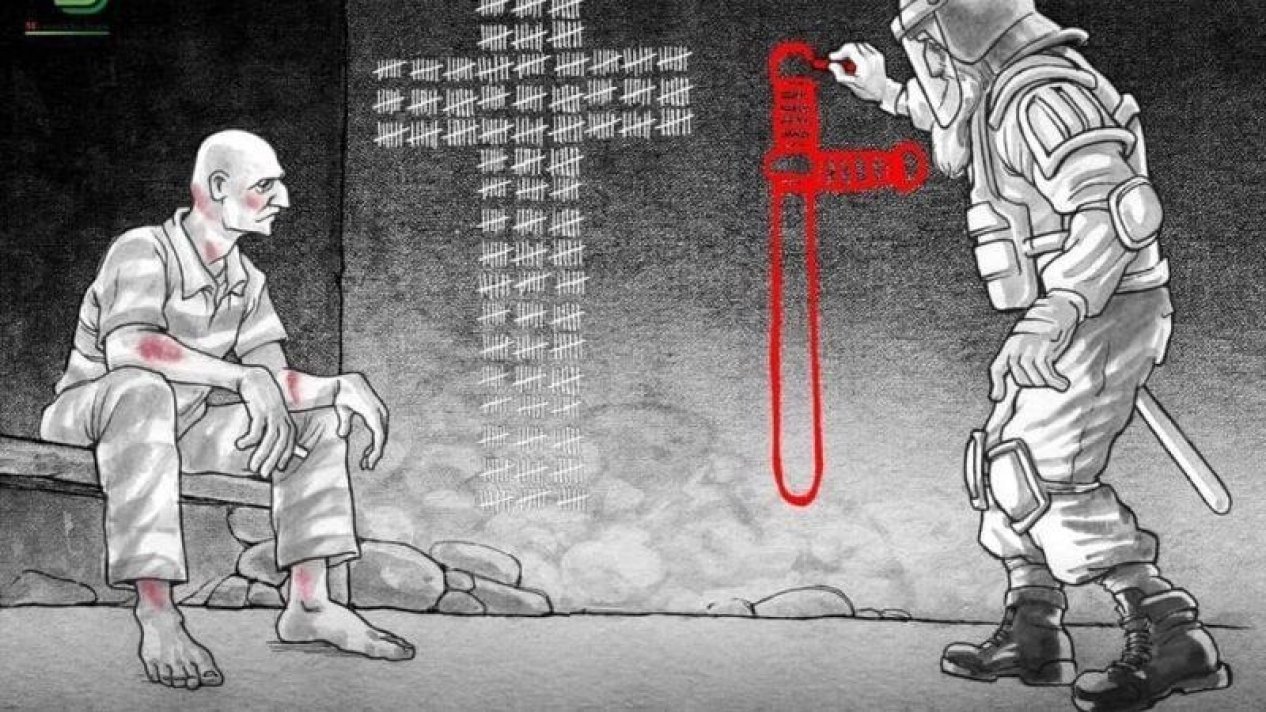
More than 30 lawyers, including at least three involved in defending Christian converts, have been arrested in recent weeks in cities across Iran.
The arrests come as thousands of protesters await trial, without recourse to legal advice, and amid calls from more than 200 Iranian MPs for them to be sentenced to death.
Hossein Ahmadiniaz, an Iranian human-rights defender now living in the Netherlands, told Article18 that many of the arrested lawyers are well-known figures, some of whom had offered legal advice to arrested protesters and openly “demanded the establishment of a legal commission to protect the rights of detainees, including the right of access to a lawyer”.
At least four of those arrested also recently signed a joint statement in support of the ongoing protests, which stated that Iran’s judiciary, “which should exist to defend the rights of citizens”, had become a “despotic” and “corrupt” force, which “deals harshly with any opposition, has grieved many families, and trapped noble and freedom-loving people with false ‘security’ charges”.
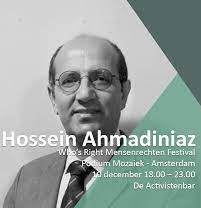
Ahmadiniaz said: “For 43 years, the regime of the Islamic Republic has always been hostile to and afraid of lawyers and the Bar Association. In these 43 years, hundreds of lawyers have been illegally detained, tortured and imprisoned, or forced to flee from Iran.”
Among those arrested are three who have helped to defend Christian converts in recent years: Bahar Sahraian, Mustafa Nili, and Babak Paknia.
Ms Sahraian has defended clients including Sam Khosravi and Maryam Fallahi, whose adopted daughter, Lydia, was ordered by a court to be removed from their care because they had converted to Christianity and Lydia was considered to have been born a Muslim; and Sara Ahmadi and Homayoun Zhaveh, who are now serving a combined 10 years in Tehran’s Evin Prison, even though Homayoun is 64 years old and suffers from advanced Parkinson’s disease.
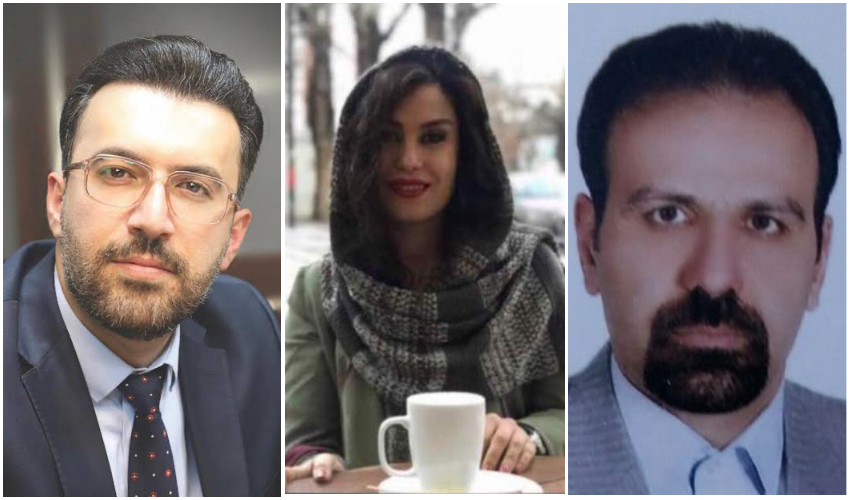
In Sam and Maryam’s case, Ms Sahraian managed to obtain two fatwas from Grand Ayatollahs – the most senior Shia Islamic authority in Iran – declaring that, owing to the “critical nature” of the case, poor health of the child and undisputed emotional attachment with her parents, Lydia’s adoption by Christian converts was “permissible”.
She was also one of 120 lawyers to sign an open letter to the head of the judiciary at the time – the now-president, Ebrahim Raisi – calling on him to overturn the decision. (He did not.)
Mustafa Nili, meanwhile, appeared in court in Rasht, northern Iran, just last week to defend three converts already serving five-year prison sentences: Ahmad Sarparast, Morteza Mashoodkari, and Ayoob Poor-Rezazadeh.

Babak Paknia, a colleague of Mustafa’s, has also helped to offer legal assistance in numerous cases involving Christians, in support of another colleague, Iman Soleimani, who has taken on many such cases and as a result has also faced immense pressure from the authorities.
According to reports, at least six of the arrested lawyers, including Mr Paknia, have been released on bail, but the vast majority remain in detention. source
Faktyoxla Lab. has tried to find out how difficult it is to change religion in Iran, especially what those who converted to Christianity went through.
Ali Shahvari grew up in a traditional and religious Muslim family in Iran. He was devoted to his country to the extent that he twice volunteered to fight on the front lines in the devastating Iran-Iraq War. But after one of his brothers was killed and another wounded in the 1980-88 conflict, he turned to drugs.
Two decades later he found salvation on satellite television. After initially questioning the messages of Jesus Christ broadcast in Persian from abroad, Shahvari eventually converted to evangelical Christianity under a new name, Iman (Faith).
But his path resulted in multiple arrests, a year in detention, and charges of blasphemy, acting against national security, and engaging in evangelical activity with the aim of attracting others to "deviant thoughts."
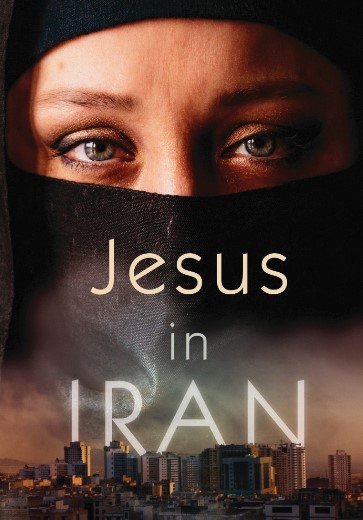
That is because it is illegal for Muslims to convert in Iran, where unrecognized religious minorities are barred from assembling.
Article 18, a London-based nonprofit organization that promotes religious freedom in Iran and advocates on behalf of its religious minorities, has documented the experiences of many who, like Shahvari, were forced to flee abroad to pursue their religious beliefs or who remain and are persecuted in Iran.
The organization's latest annual report, produced jointly with other religious advocacy groups, reports more than 120 incidents of arrest, detention, or imprisonment of Christian converts, Iran's largest Christian community.
The joint report says that one of the most striking trends in 2021 was the increased involvement of Iran's powerful Islamic Revolutionary Guards Corps (IRGC) in the crackdown on Persian-speaking Christians. The IRCG was responsible for 12 of the 38 documented incidents of arrests of Christians or raids on their homes or house churches in 2021.

The report covering 2020-21 also notes the Iranian authorities' increased focus on cracking down on evangelism online, with Supreme Leader Ayatollah Ali Khamenei advancing a so-called "cyberarmy" to "protect" the Islamic republic from perceived threats.
Following the Islamic Revolution in 1979, the Twelver Jafari School of Shi'ite Islam was named as Iran's official religion under the constitution, which also states that all Iranian laws be derived and consistent with Islamic doctrine.
Click here to read this in Turkish
Three minority religions - Zoroastrianism, Judaism, and Christianity - are constitutionally recognized, but others are not and their followers are barred from holding services or possessing religious materials in Persian. That includes Christian coverts, who are not considered indigenous Christians.
"Indigenous Christians are mostly from Armenian, Assyrian, and Catholic churches, with some belonging to the Assemblies of God denomination," said Kiri Kankhwende of the UK-based religious advocacy organization Christian Solidarity Worldwide (CSW), which also contributed to the report. "While several converts have joined the Assemblies of God denomination, others belong to various evangelical house-church networks."
In February 2021, Iranian lawmakers amended Articles 499 and 500 of the Penal Code, paving the way for converts to be handed sentences of five years in prison for "engaging in propaganda that educates in a deviant way contrary to the holy religion of Islam."
CSW's Kankhwende said that the "situation remains bad and alarming" for Christian converts in Iran, and that the trend of arrests "is ongoing."
Last month alone, there was a raft of cases involving Christian converts.
Among them were the sentencing of three Christian Iranian men by the Rasht Revolutionary Court to five-year prison terms for "propaganda activities" related to their alleged teachings of a "deviant sect."
Two of the three members of the non-Trinitarian Church of Iran - Ayub Purrezazadeh and Ahmad Sarparast - were arrested in September in an IRGC raid on their house church. The third, Morteza Mashoodkari, was arrested the same month at his home.
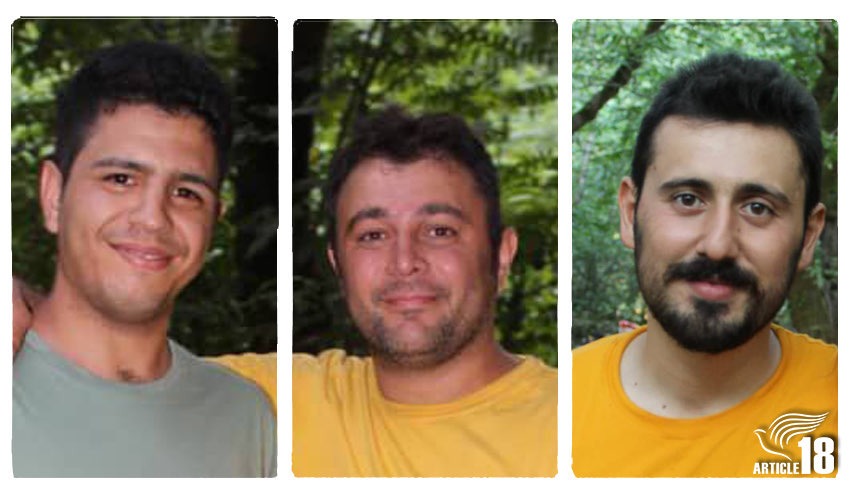
Article 18 said that efforts by prosecutors to cast the three as "Satan-worshippers" due to their interpretation of the Trinity appeared to be "an obvious attempt to vilify the group and lessen public sympathy for them."
Fariba Dalir, a 51-year-old Christian convert who was arrested in the summer of 2021 along with six others, began serving a two-year sentence on April 16 for "acting against national security by establishing and leading an evangelical Christian church."
Dalir was sent to Tehran's notorious Evin prison the day before Easter. Four of the others, including her husband, were sentenced to 10 months in prison for membership of the banned church.
Another woman, Sakineh (Mehri) Behjati, was sent the same day to serve a two-year prison sentence at Evin prison on charges of "acting against national security" through her involvement with a house church. She was reportedly later allowed to transfer to another facility in the northern city of Rasht so she could be closer to her young child.
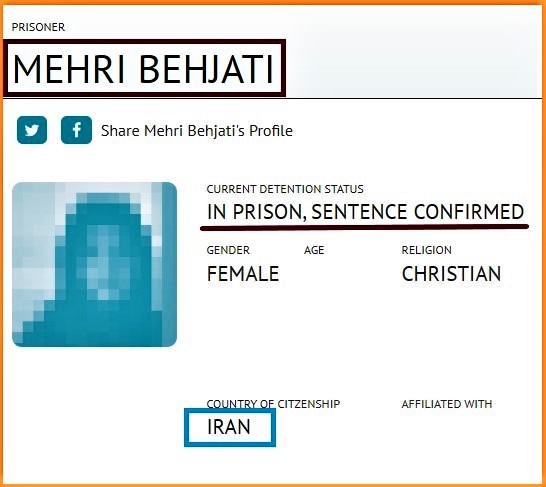
Javaid Rehman, the UN special rapporteur on human rights in Iran, in his latest report expressed concern over the "continued repression of religious minorities, including through the forcible closing of houses of worship on national security grounds."
Rehman cited cases of pressure against Sunni Muslims, members of the Baha'i community, and the arrests of Christian converts despite the Iranian government's statements that religious minorities were respected and Christians, Jews, and Zoroastrians were constitutionally free to perform their religious rites.
The US Commission on International Religious Freedom in 2022 predesignated Iran as a "country of particular concern," in part because it continues to “arrest, charge, sentence, and jail scores of Christians on charges including 'propaganda against the regime.” source
During our investigations, we determined that, in general, converts in Iran face charges of "propagandizing against the regime".
Miles Windsor, from the Religious Freedom Institute, told Premier the propaganda charge is also being used to punish Christians and other believers: “Iran continues to be one of the worst violators of religious freedom and that has continued over the past year and seems to be intensifying. We've seen in recent times, more arrests.”
Among those arrested is Hamat Ashouri, a member of the Church of Iran. He was sentenced to ten months in prison in March for “propaganda against the regime”. A number of other Christians remain in prison.

Miles Windsor says the Iranian regime is using the propaganda charge against all those it sees as a threat: “There is a genuine paranoia that any religious group that doesn't fit with the orthodoxy of the state, is perceived as something that they can't control. In their pursuit of a homogenous Shia community, they're seeking to do everything they can to squeeze any minorities, including the Christian community.”
An Iranian woman named Mariam, who came to Germany as an illegal asylum seeker after she converted to Christianity in Iran, tells about the problems she experienced while she was in her country: “A few months later, I was at the swimming course at the pool, my father called our apartment and said that the police came to search our apartment and searched my Bible.”
My father said it would be dangerous for us to come home, that we should go to his summer house. My wife and I went to that house, we did not see anyone for a few days. Then my wife's brother came to visit us and told us that both families' homes were being searched and that we could not return. So, we decided to flee the country.” source
According to the writings of Afghan freelance journalist Fariba Nawa, who met with Iranian immigrants among the Evangelical Christian community in Denizli in 2018 and took their opinions, Farzana, 37, a hairdresser from Tehran from the church congregation, said, “I feel good. We are closer to God now,” he says. “We cannot learn Farzana’s last name because she wants to keep her family in Iran out of trouble. His family is aware of his conversion, so they are afraid that something will happen to them in Iran.”
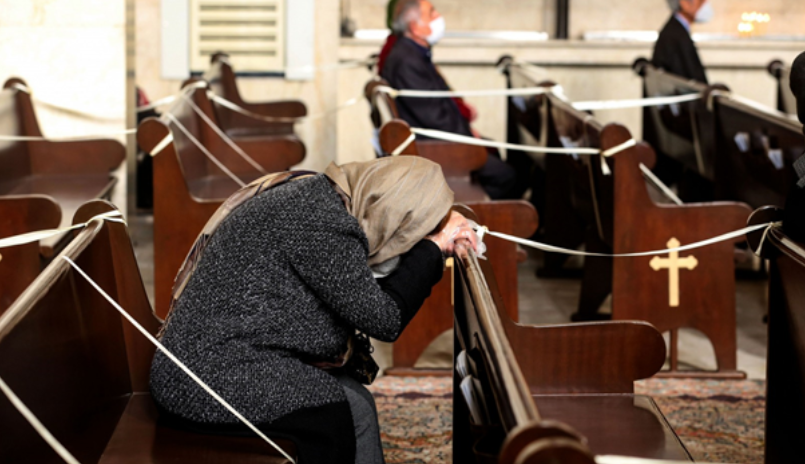
Farzana says that the Islamic view of women, especially in Iran, pushed her to convert to Christianity. After she got divorced from her abusive husband, the court ruled that her older children should be given to the father. According to Iran's sharia law, older children must be given to the father. This event deeply affected Farzana. “This is why Islam disappointed me,” says Farzana. “The judge who sits there and gives judgments is entirely on the side of men. Everywhere in Iran, men are ahead of women.”
But a year later they married and had a child named Andya. She hired a friend from high school at the beauty parlor, and then her converting friend started taking her to the secret churches of Tehran. “Once she trusted me, she started giving me some writings and saying, “I'm gifting these to you. Read these. These are the words of God,” she said.
The Revolutionary Guards, who followed the church, later arrested her for having a Bible in her car. Her husband signed a document promising that she would never return to the church and was released. The church advised them to seek asylum and they came to Denizli. Here Farzana began working in a beauty salon and waiting to settle in the West. source
Vahid Hakani, another Christian who now lives in Europe, did not know when he first learned about Christianity and changed his religion that it would be such a big "mistake" to convert or that even finding Christian literature would be so difficult. It took him a year to find a copy of the New Testament. Hakani, who lives in the city of Shiraz, says it was difficult to get to the only Persian-speaking home-church in the city: because the home-church was opposite an outpost of both a local intelligence agency and Iran's "morality police." Hakani says that Iranian security agencies are always monitoring house-churches, making even private worship dangerous. One day, Hakani is called and arrested. "That's when Hakani realized how worthless my life was for the mullahs in Iran."
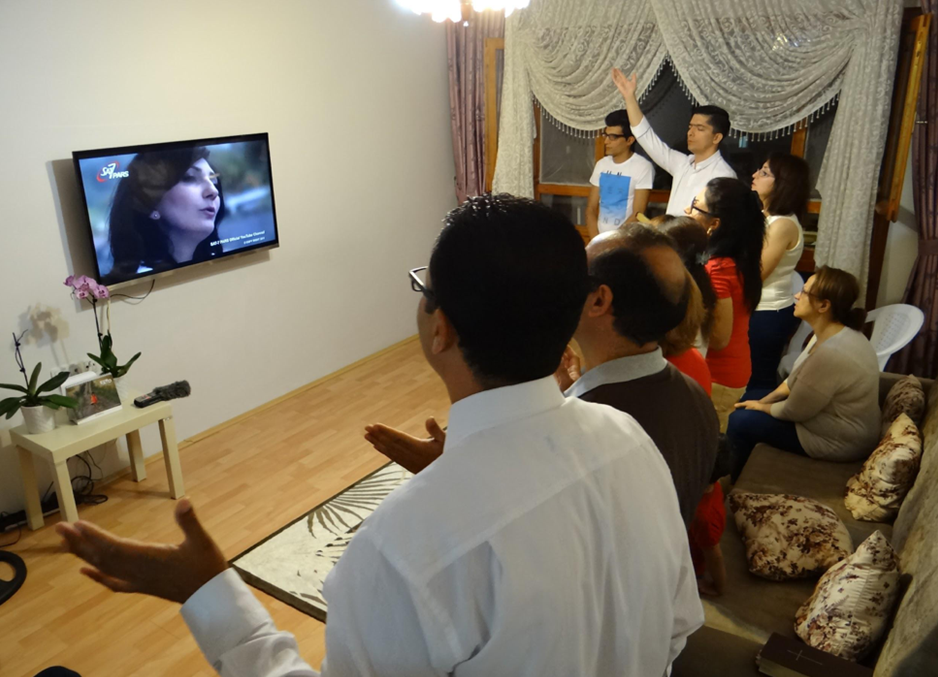
The Ministry of Intelligence first contacted Hakani in 2008 and warned him not to communicate with the Mohabat Christian television channel, which broadcasts via satellite.
Hakani is later arrested at a Christian meeting in 2011. The detainees knew how others were treated by the authorities, especially in the prison they were taken to, the Adelabad Prison near Shiraz, a notorious detention center. Therefore, Hakani and his other Christian brothers were afraid of how they would be treated.
It was as they expected. Detainees' basic rights were routinely denied, including the right to go out once a day or have regular phone calls with their families.
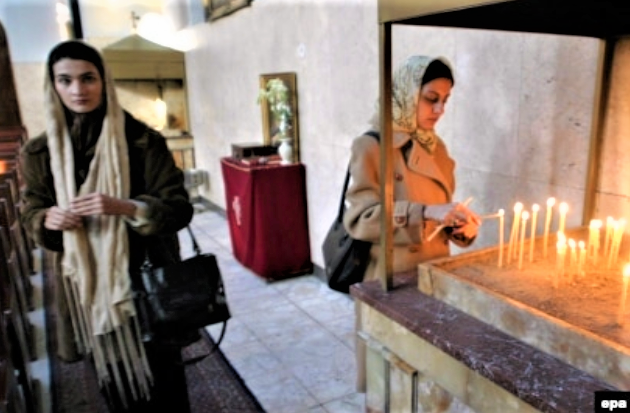
During his time in prison, Hakani goes on hunger duty twice to protest ill-treatment and rejection of medical care, resulting in gastrointestinal bleeding. When he is released after serving most of his sentence, he leaves Iran. source
Thus,
-The fundamental rights and freedoms of the citizens of the countries who changed their religion in Iran were violated,
-They were subjected to constant pressure by the mullah regime, they were arrested, and as a last resort they had to migrate from the country,
It is safe to say that it is of great importance that this issue is constantly kept in the attention of the world public opinion.




















